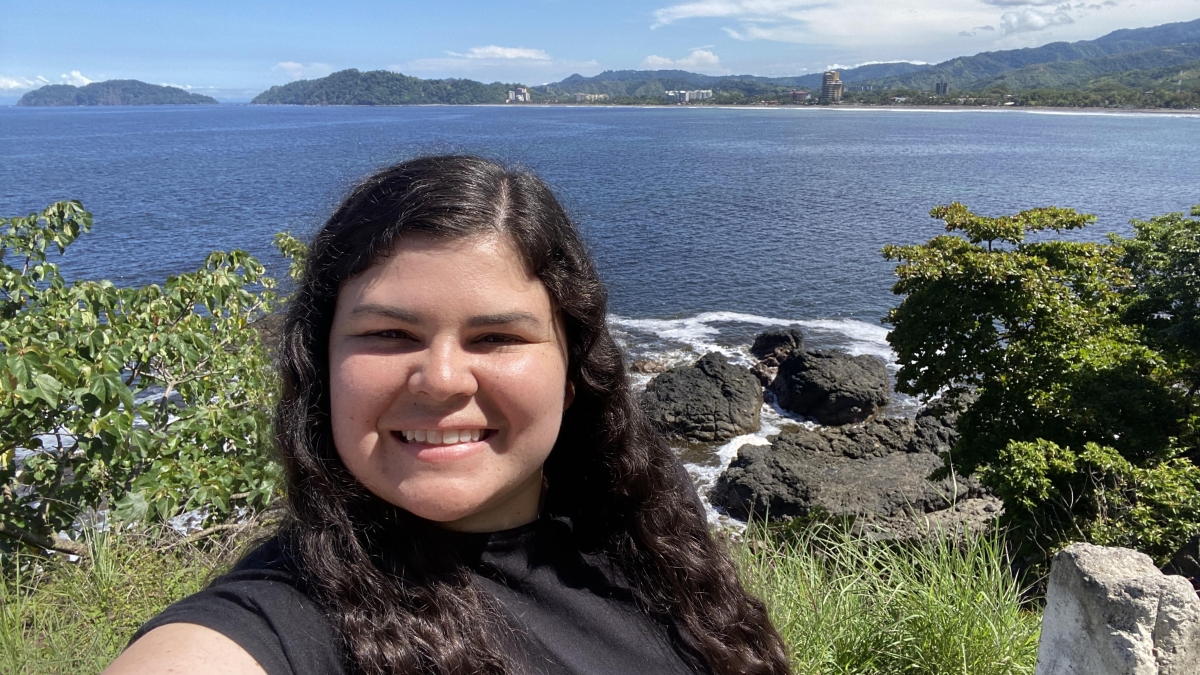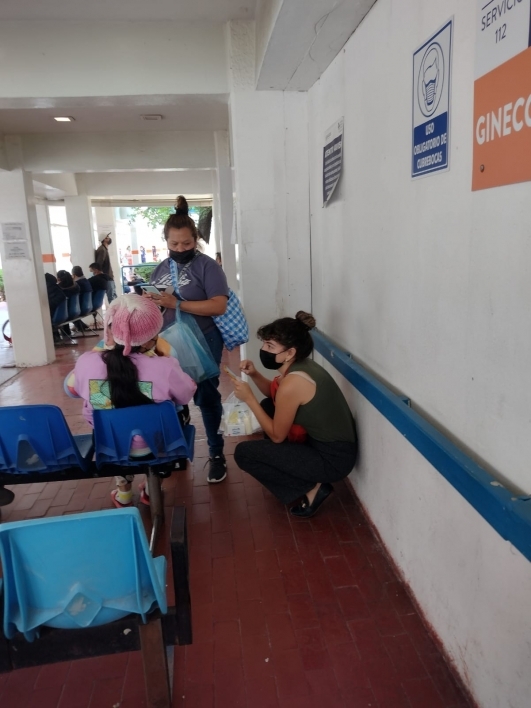Applications for Barrett Global Explorers Grant now open

With support from the Barrett Global Explorers Grant, Barrett Honors College student Kallee Schwann traveled to Costa Rica and the Dominican Republic to study the health care resources provided to human trafficking victims. Photo courtesy Kallee Schwann
The application process for the Barrett Global Explorers Grant is rigorous, but the reward is great.
Only students in Barrett, The Honors College at Arizona State University are eligible to apply for the Barrett Global Explorers Grant (BGEG), an award of up to $7,500 that supports globally focused summer research that leads to an honors thesis.
The grant provides funding for Barrett juniors to conduct a multicountry research project of their own design, develop global connections and bolster their understanding of world issues.
The award is open to students in good standing at Barrett who will have at least one semester of undergraduate study remaining after the summer of 2023 and who will defend their honors thesis in fall 2023 or spring 2024.
Applicants must initially submit an intake prospectus and meet with an advisor in the Lorraine W. Frank Office of National Scholarships Advisement (ONSA) by Dec. 1.
By Feb. 1, 2023, applicants must submit a three- to five-page proposal detailing an international research project spanning at least two countries. A committee of Barrett faculty members then selects the five strongest applications that must be developed into five- to eight-page proposals and 10-minute oral presentations. Students selected for the grant must plan to begin their travel no sooner than May 10, 2023, and must conclude it before the start of the fall semester.
Kyle Mox, director of ONSA, said the selection committee is especially interested in proposals that show high academic merit and attention to ASU’s commitment to social embeddedness and Barrett’s interest in global initiatives. Students also must show a strong interest in international travel, as well as the fortitude to travel on their own to complete their research.
“Successful proposals have had the university’s mission of global engagement and community solutions, as well as students’ cultural awareness and adaptability woven into them. We are looking for students who can engage in international travel in order to contribute their insights and talents to problem-solving research on a global scale,” Mox said.
In the past several years, the BGEG has supported students’ research in many areas, including citrus farming on three continents, human-wildlife interaction in Thailand, Australia, Nepal, South Africa, and Colombia, and support to survivors of sex trafficking in Ireland, France, Spain, Ghana and South Korea.
Barrett Global Explorers Grant recipient Valeria Perez (right) interviews patients at a hospital in Mexico. Photo courtesy Valeria Perez
The most recent winners of the grant were Valeria Perez and Kallee Schwan. Schwann travelled to both Costa Rica and the Dominican Republic to study the health care resources provided to human trafficking victims in their respective countries. To make connections in both locations, she worked with HealEx, an international organization that specifically works to bridge the gap between health care and victims of human trafficking.
Schwann had to demonstrate unusual adaptability in executing her project.
“My initial project was going to include a comparison of the implementation of trauma-informed care between Tier 1, Tier 2 and Tier 2 Watch List countries,” she said. “But due to the limited contacts available, I made the switch to do a comparison between two Tier 2 countries — Costa Rica and the Dominican Republic. This switch was more reasonable to avoid comparing 'apples to oranges' due to some of their similarities, and it fits better with the budget,” she said.
For her project, Perez conducted research on the outlook of pregnant women toward the COVID-19 pandemic in Mexico in relation to the government's mitigation efforts.
She traveled to public and private hospitals in Guadalajara and Mexico City surveying and interviewing research participants.
Perez attests to the value of the on-the-ground research supported by the BGEG. “Many months of preparation and background research paled in comparison to a single month of field research,” she said.
“The opportunity to speak to these women face to face provided me so much more than just the answer to my research question. It ultimately gave me a deeper understanding of their situations, frustrations and expectations, among many other things. I'm incredibly excited to dive further into my data and transform it into programs that can benefit these communities.”
Both Schwan and Perez will integrate their research findings into their Barrett honors theses, which they will complete and defend this year.
More information about the Barrett Global Explorers Grant is here.
More Local, national and global affairs

ASU Lodestar Center supports Tucson's vibrant nonprofit sector with research, training
If all of the nonprofits in Arizona were grouped together as an industry, they would be the sixth-largest sector in the state in…

ASU Library collection captures robust history of Arizona
Editor’s note: This is part of a monthly series spotlighting ASU Library’s special collections throughout 2024.Copper,…

ASU helps University of Guyana faculty earn doctoral degrees in expedited program
Shenella Benjamin and Norwell Hinds joined hundreds of other Sun Devils in receiving PhDs from Arizona State University this week…


